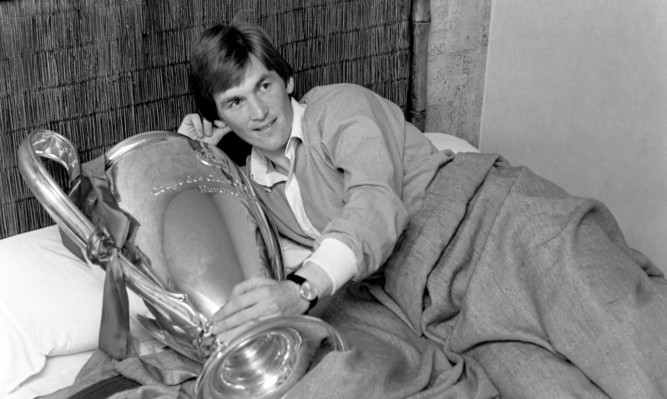
IF the public’s spirits were uplifted by the rise and rise of the game’s popularity in the 1960s, the following decade was an altogether more sobering period for British, particularly English football.
It was the era of long hair, short shorts and Total Football but it also witnessed the birth and rapid growth of the hooligan and saw England’s national team exiled to the wilderness.
The 70s began with Sir Alf Ramsey taking his World Champions to Mexico to defend their trophy, only to squander a two-goal lead and be eliminated at the quarter-final stage by old rivals West Germany.
In the aftermath, Ramsey jettisoned ageing heroes from 1966 like the Charlton brothers, Bobby Moore and Nobby Stiles.
However, he couldn’t take his new-look team to the 1974 finals because he failed to beat Poland at Wembley on that fateful night in October, 1973.
Brian Clough, sitting in a TV studio, famously called their goalkeeper a clown, but Jan Tomaszewski made save after save and England were not able to join Scotland in West Germany.
Six months later, the manager who had won the World Cup was sacked, replaced that summer by Don Revie, who had just led Leeds to the First Division title in impressive fashion.
The 1978 World Cup was in Argentina but England were again absent.
After failing to qualify, Revie quit to become coach to the United Arab Emirates the first time a manager of England had ever resigned.
Scotland qualified again, though, under the supremely confident Ally McLeod.
Ally’s Army flew to South America proclaiming they were going to win the World Cup but winger Willie Johnston flew home early after failing a drugs test and the whole squad followed not long afterwards with their tails between their legs after failing to beat Peru and Iran.
But at least the Scots had participated. And in England’s absence from the two major global tournaments, the world scene changed completely.
That was largely thanks to the emergence of Holland as a superpower, even though they lost both World Cup Finals to the host nations, West Germany and Argentina.
Total Football basically meant casting the rigid formation played by most other teams into the dustbin. Any outfield player could fit comfortably into the role of another.
It was invented by Rinus Michels, coach at Ajax and of the Dutch national side, and put into practice by playmaker Johan Cruyff, the outstanding player of the decade, though Franz Beckenbauer ran him close in the early 70s.
The struggles of England’s national side were in stark contrast to the success of the club sides on the continent in the latter half of the decade.
Liverpool, Nottingham Forest and later Aston Villa made sure the European Cup stayed in England for six consecutive seasons between 1977 and 1982.
Liverpool were the dominant force domestically. Bob Paisley took over from the legendary Bill Shankly in 1974 and in the five seasons between 1976 and 1980, they won the title four times.
The only team that managed to break their domination was the Forest side managed by Clough.
Manchester United have since become the country’s most successful team but back in 1974, they were relegated to the Second Division.
In England, the decade’s most successful players were not individualists, as they had been in the 60s, but team men such as Kevin Keegan, Kenny Dalglish, Peter Shilton and Alan Hansen.
The culture of the day was to promote the work ethic and to brand flair players as mavericks.
So the likes of Rodney Marsh, Alan Hudson, Tony Currie and Stan Bowles never truly fulfilled their potential in terms of caps and medals.
It meant football was less colourful and that was probably a reflection of what was happening in British society with strikes, power shortages, three-day weeks and social unrest.
That wider discontent manifested itself on the football terraces as the decade went on, with organised groups of hooligans usually known as “crews” making stadiums, trains and town centres perilous places to be on a Saturday afternoon.
Each club had its own hard core of violent young men whose prime purpose each week was not to watch their team play, but to confront the crew of the rival club.
A series of shocking events saw authorities introduce crowd segregation and fencing at grounds.
After Manchester United were relegated, their supporters caused mayhem at smaller grounds up and down the country.
A Bolton fan stabbed a young Blackpool fan to death behind the Kop at Bloomfield Road during a Second Division match.
Tottenham and Chelsea fans fought on the pitch before Spurs relegated Chelsea in 1975.
In March, 1978, a full-scale riot broke out at The Den during an FA Cup quarter-final between Millwall and Ipswich Town.
Fighting spilled out on to the pitch and into the narrow streets around the ground. Dozens of innocent people were injured.
British fans exported the violence to Europe. In 1974, Spurs fans ripped seats and threw them at police and home supporters, before rampaging through the streets of Rotterdam.
The following year at the European Cup Final in Paris, Leeds fans responded to some questionable refereeing decisions by raining down missiles on the pitch and destroying cars and businesses outside.
Hooliganism became known the world over as “the English Disease”.
Crowds dwindled as families deemed football to be an unsafe environment.
The trouble-makers found that they formed an ever-increasing proportion of those attending and that only made them bolder and less fearful of being caught.
When the decade ended, British hooliganism had reached the adolescent point in its development.
In the 10 years ahead, it would reach full, brutal maturity, with all the tragic consequences that brought with it.

Enjoy the convenience of having The Sunday Post delivered as a digital ePaper straight to your smartphone, tablet or computer.
Subscribe for only £5.49 a month and enjoy all the benefits of the printed paper as a digital replica.
Subscribe